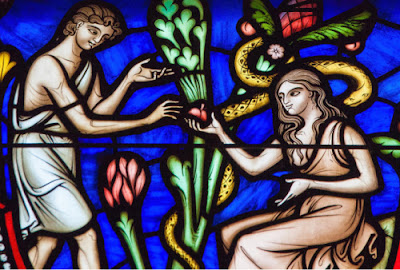with you, his loyal readers -
The Greatest Pun Ever Told.
The pun, also called paronomasia, is a form of word play that exploits multiple meanings of a term, or of similar-sounding words, for an intended humorous or rhetorical effect.
These ambiguities can arise from the intentional use of homophonic, homographic, metonymic, or figurative language.
A pun differs from a malapropism in that a malapropism is an incorrect variation on a correct expression, while a pun involves expressions with multiple (correct or fairly reasonable) interpretations.
one thing but mean your mother.
Pun for the AgesTHE inglorious pun! Dryden called it the “lowest and most groveling kind of wit.” To Ambrose Bierce it was a “form of wit to which wise men stoop and fools aspire.”
Universal experience confirms the adage that puns don’t make us laugh, but groan. It is said that Caligula ordered an actor to be roasted alive for a bad pun. (Some believe he was inclined to extremes.)Addison defined the pun as a “conceit arising from the use of two words that agree in the sound, but differ in the sense.” “Energizer Bunny Arrested! Charged with Battery.” No laugh? Q.E.D.
Puns are the feeblest species of humor because they are ephemeral: whatever comic force they possess never outlasts the split second it takes to resolve the semantic confusion.
Most resemble mathematical formulas: clever, perhaps, but hardly occasion for knee-slapping. The worst smack of tawdriness, even indecency, which is why puns, like off-color jokes, are often followed by apologies.
The true punster’s mind cycles through homophones in search of a quip the way small children delight in rhymes or experiment babblingly with language.
Accordingly, the least intolerable puns are those that avoid the pun’s essential puerility. Richard Whately, Archbishop of Dublin, was a specialist.
He could effortlessly execute the double pun:
Noah’s Ark was made of gopher-wood, he would say, but Joan of Arc was maid of Orleans.
Some Whately-isms are so complex that they nearly amount to honest jokes:
Why can a man never starve in the Great Desert? Because he can eat the sand which is there.
But what brought the sandwiches there? Why, Noah sent Ham, and his descendants mustered and bred.
Whately shows us that it is the punner himself who gives his art a bad name, by so frequently reaching for the obvious. Nothing vexes so much as a pun on a name, for instance. Yet even these can rise to wit if turned with finesse.
Jean Harlow, the platinum-blond star of the 1930s, on being introduced to Lady Margot Asquith, mispronounced her given name to rhyme with “rot.”
“My dear, the ‘t’ is silent,” said Asquith, “as in Harlow.”
Tel Ashdod, and the Summer of 1968.
The History of Ashdod in 1968
came through.
came through.
 |
| Every cycle of destruction and fire left a layer of ash. |
of archaeology begins.
"And that goes to show that
from a hole in the ground."










No comments:
Post a Comment